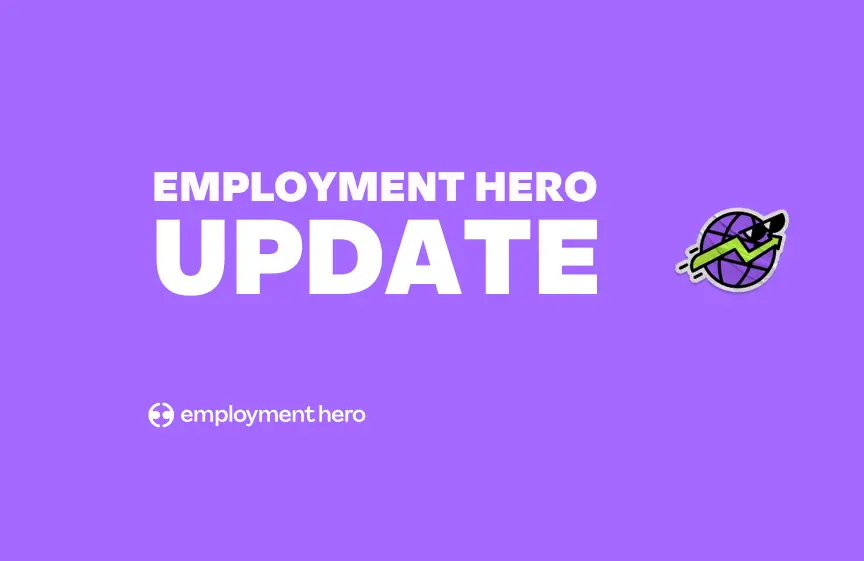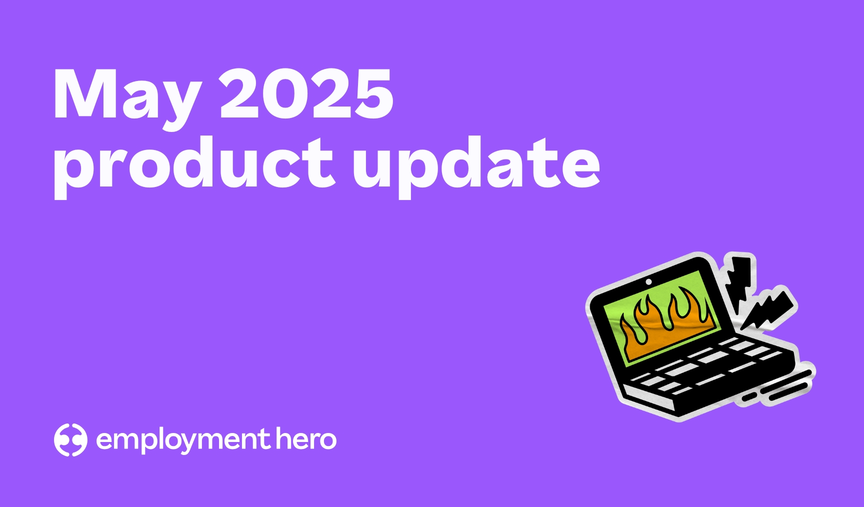The New Zealand borders are open: How to attract skilled workers from overseas
Make the most of the international talent pool and ensure your business stands out as a top place for skilled migrants.

Contents
New Zealand is no longer one big bubble. As of last week, our borders opened up to visitors and workers from a number of countries and will shortly open up to everyone at the end of July.
It’s an exciting time – not only can we reconnect with loved ones but businesses will find it far easier to operate internationally. With an active skills shortage in the country, it’s also a golden opportunity to bring a wealth of talent from overseas to join companies here in New Zealand. This shortage of talent is only going to get tougher, with 29% of New Zealanders we surveyed saying they felt there are better opportunities overseas.
New Zealand businesses are going to need more overseas workers – and fast.
Global demand for high-skilled workers is on the rise
After several years of our world being what we can see from our window, the possibilities of travel and relocation are back. For businesses, this is a two-sided coin – they’ll lose workers to overseas opportunities and adventures, but they can also gain employees through skilled migration into New Zealand.
Change is in the air everywhere – 41% of employees worldwide plan to leave their jobs this year. The market has also changed, with specific skills gaps growing wider across the world. For example, across the Tasman in Australia, 85% of businesses are reporting skills shortages are affecting their capacity to operate. A recent Business NZ report showed we’re experiencing similar shortages, with at least 10,000 extra staff needed in the Canterbury region alone.
As a global problem, it’s becoming increasingly unlikely that many companies will be able to meet their talent demands in their own backyard. It’s time to look further afield and beat the competition.

How difficult is it to hire people from overseas in New Zealand?
As beneficial – and often, essential – overseas workers are in New Zealand, there can be some red tape in getting them here. Namely, ensuring they have visas and the right to work. Making it more challenging, Immigration New Zealand has tightened immigration policies in recent years, asking for higher salaries and a labour market test by employers.
Immigration New Zealand recently announced new changes in the form of the new Accredited Employer Work Visa from 4 July 2022, which puts more pressure on employers, rather than their prospective employees. Previously, the person wishing to work for a company overseas would largely be responsible for applying for a visa – now, it’s down to employers to comply. The steps include accreditation and a job test, although some roles are exempt.
Regardless, if international talent is what you’re looking for, then going through those steps is essential. In the long term, the benefits are likely to outweigh the paperwork.
How to attract global talent to New Zealand
So how can businesses attract overseas talent? You’d think it would be easy – after all, New Zealand has plenty going for it, and has been graded as the fourth most attractive country for high-skilled workers by OECD. Plus, we have cool mountains, beautiful waterfalls, dreamy beaches and yes, we have Hobbiton.
However, there’s a key difference between visiting a country for a short period or for an OE, versus relocating your whole life to start anew. Emigrating for a role is a big step and not without its sacrifices.
Consider what you have on offer
Business leaders and HR should think carefully about what their company offers, and the lifestyle that their employees could enjoy by moving to work for them. Would they be based near the coast, with windswept beaches and a laid back atmosphere? For potential migrants with families, how are the local schools in the area? Is there a good local community?
Remember, all potential expats will be considering, ‘Could we make a home in New Zealand and settle for life?’ Think about how your company, and the environment your employees are living in, could answer that question for them.

Familiarise yourself with the whole visa process
The New Zealand immigration system has changed a lot in recent years and it’s crucial that employers of overseas workers understand the bigger picture. They should have checked their employees have the correct employment rights, a valid visa and that they’re meeting the conditions set by the Government. The new Accredited Employer visa will also be required to employ skilled workers.
This isn’t just important for your own compliance. Having a HR team that is aware and comfortable with the details of the visa process will be of huge reassurance to skilled workers moving to New Zealand, as getting through the mountains of formal forms and paperwork can be nerve-wracking and isolating.
No, you can’t (and shouldn’t) be giving immigration advice but knowing how the system operates is useful for business purposes too. For example, if a new worker is waiting on their visa processing and there are slight delays in the system, it’s not going to be a surprise to the HR team either.
Your HR team should also make sure that the incoming team members are across the company policies. This is something Employment Hero can do remotely, allowing a new recruit access to the Employment Hero portal where they can read and sign off on policy before they start. It’s all paperless onboarding so no need to use printer ink!
Reach talent where they are
Overseas talent can’t find you if you’re not visible. If you’re looking to attract people overseas, you need to meet them where they are and actively search. Consider how you could broaden your digital reach, whether that’s with global social media advertising or contacting recruitment agencies in other countries.
Many roles advertised by companies are often trying broadly to appeal to both local prospects and highly skilled workers overseas. This can be off-putting for migrants, who then have to ascertain whether the company is accredited, or if they’ll get any support for relocating. If you’re advertising for migrant staff, make sure and specify these important details upfront – they’ll be a huge selling point.
An applicant tracking system is a fantastic tool for a proactive talent search, allowing you to track prospects and make sure your ads are being seen in the right places, by the right people. Consider getting one of these to really make a difference in your talent spotting.
Don’t forget your employer brand either. A bigger talent pool means more competition, so it’s important to make sure that your business stands out from the rest.
Make the big move easier
Moving overseas is a huge deal for migrants and for many, they’re leaving behind friends and family for something completely new. Some are moving with children and partners, and sometimes even pets. Luckily there are ways that businesses can support this.
Most importantly, consider offering a relocation package. Typical packages include financial support for moving and flights, initial temporary accommodation, visa application assistance, language classes and help with cultural integration. Be clear about this upfront so that potential workers can make a decision before committing to the role. The more support you can give, the more tempting your job offer will be.
Another small way businesses can offer support is by ensuring that the new employee has a point person, usually someone in HR, who can check in up to the moving date to ensure they have everything they need. That extra reassurance that their new employer is invested in their move and wellbeing will really make a difference to their sense of security.

Support your workers when they arrive
The flight landed, your new employee has unpacked and they’re ready to start – brilliant! The support doesn’t end there though. Ensure that they’re settling well into the team and remember that they’re new to the country, so encourage team members to reach out and help them feel at home, even if that’s just a recommendation for a really good bakery nearby.
This goes for all employees but make sure you’re keeping track of how your new employee is feeling. Employee engagement software is useful for this, allowing businesses to build a positive culture and stay on top of how their teams are getting on.
It might seem like a lot but ensuring your new employee is settling in well is important. The process of assimilating into a new culture is a challenge and it has its ups and downs. Every person will respond differently to cultural differences but the more support your business offers, the more likely they are to stay in their new country and their role for the long term.
Relocation is just one option
Hiring international employees can be hugely beneficial for your company and many businesses can see the value in broadening their recruitment.
That said, while this guide covers relocation from overseas, there is an alternative to asking new workers to sell up their house and hop on a plane. After the last few years, remote work has proven to be effective for many and could be another answer to the international skills shortage.
Hiring internationally can be done remotely too – could you transform your work to operate across time zones? If so, you could really benefit from the wealth of highly skilled workers out there, and we have the perfect tool to help you make this a reality.
Could a global team work for your business?
In 2022, we’re entering a new world of recruitment solutions. If team relocation doesn’t suit your business, consider the possibilities of a global remote talent pool.
Our Global Teams software makes international hiring easy. We take care of the tricky compliance stuff, addressing visa and tax challenges for you, to help your business hire overseas effortlessly.
How do we do it?
Download our free guide to Global Teams to learn more.
[inline-form form-id=2323]
Related Resources
-
 Read more: SEEK Cut the Cord. Here’s What We’re Doing About It.
Read more: SEEK Cut the Cord. Here’s What We’re Doing About It.SEEK Cut the Cord. Here’s What We’re Doing About It.
Seek is ending Employment Hero’s API access. Read about what we’re doing and how we are building a faster and…
-
 Read more: Product Update: May 2025
Read more: Product Update: May 2025Product Update: May 2025
Follow our May 2025 product update as we share all of the latest and greatest features we’ve released over the…
-
 Read more: Product Update: April 2025
Read more: Product Update: April 2025Product Update: April 2025
Follow our April 2025 product update as we share all of the latest and greatest features we’ve released over the…











